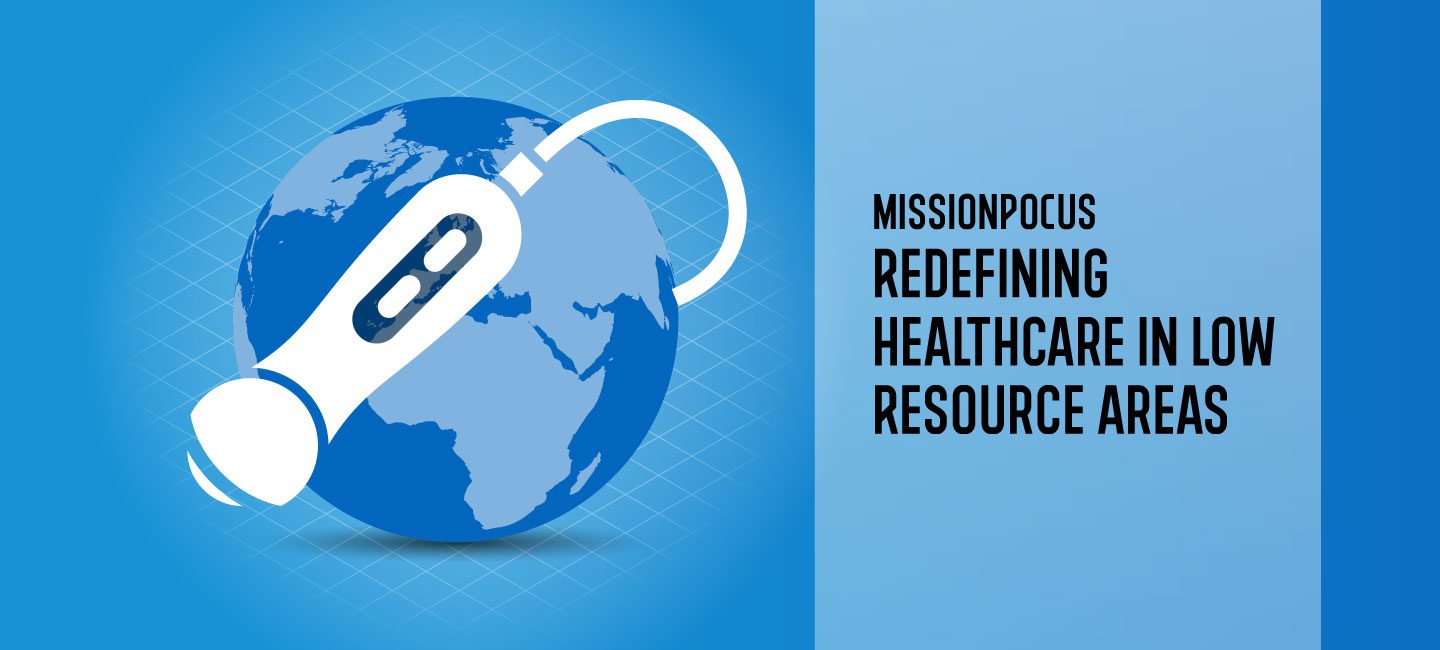Through its MissionPOCUS initiative, the Point-of-Care Ultrasound (POCUS) Certification Academy™ collaborates with healthcare providers to provide grant funding to select organizations to encourage the expansion of POCUS to new communities and practitioners worldwide.
The 2021 MissionPOCUS grant recipients, MedGlobal, a humanitarian and healthcare organization, and Global Ultrasound Institute (GUSI), a community of expert POCUS educators and practitioners, partnered to establish a remote pilot program integrating POCUS certification with POCUS education and training processes.
The team at the POCUS Certification Academy couldn’t be more excited about the alliance formed by our 2021 MissionPOCUS grant recipients. We followed up with Board Member and Head of Ultrasound Training at MedGlobal, Dr. Nahreen Ahmed, to learn about the recipients’ progress.
Dr. Nahreen Ahmed reminds us that this project’s “goal is to identify the diagnosis more clearly, so that (clinicians) can utilize the resources they have, and minimize referrals, which can be difficult on the patient.” The clinicians at Rohingya Refugee Camp, the site of this pilot program, have minimal resources; for example, many cannot get an x-ray without transferring a patient out for referral. When a patient is not feeling well, moving them to another facility for care is not always the best option. By utilizing POCUS, clinicians can treat more people in the clinic, saving the care team from using resources to refer patients elsewhere.

POCUS can help reduce unnecessary referrals and enhance the level of care. Dr. Ahmed said, “They might be resource-limited in many ways, but now they can have more diagnostic information.” Suppose a clinician uses ultrasound to identify someone with pulmonary edema or fluid in the lungs from heart failure. They can prescribe medications to treat the diagnosis and then follow up with imaging to ensure the patient improves.
Transportation is also problematic in this rural area. A patient may have the means to arrive at the clinic, but they may not have a way home if transferred to another clinic for treatment. After being discharged, a patient may have to hitchhike home or figure out another means of transportation.
Additionally, Dr. Ahmed explains that during these pivotal times, the clinic utilizes POCUS by deciphering what a lung ultrasound reveals in patients with COVID-19. “Lung ultrasound can be used as a prognostic indicator for patients who will get sick,” Dr. Ahmed shares. They can identify that the lungs of a patient with COVID-19 have a particular pattern on ultrasound versus an ultrasound of a patient with heart failure.
Recognizing these differences, the clinicians opt to conduct imaging on each emergency room patient to determine what findings correlate with dire outcomes. The goal is to identify patients who will become ill but have yet to exhibit any symptoms. By using ultrasound, providers can determine if a patient requires a referral to another facility or can be treated at the clinic.
Someone may enter the clinic looking fine but may present lung abnormalities on ultrasound. Therefore, they may be on 24-hour observation before being sent home. Another patient may have COVID-19, but their lung ultrasound appears normal. The clinician may choose to observe this patient from home in this case. The application of POCUS within the clinic has assisted the team with making the most appropriate care decisions for their patients.
When discussing the impact of POCUS worldwide, Dr. Ahmed said her focus is on spreading awareness of what POCUS is and what it can do for medicine. She noted the clinicians in this program were not aware of the availability or possibilities of a tool like this. Through MissionPOCUS, they have encountered the impact that this incredible modality has on their work.
Many Rohingya refugees visit the clinic with serious ailments that benefit from diagnostics. Clinicians in these camps are now using POCUS as a diagnostic tool, where high-level diagnostics were once unavailable. POCUS technology empowers frontline clinicians to do a better job at delivering care. The use of ultrasound, education, training, and coaching has allowed these clinicians to make better decisions for their patients, ultimately elevating the level of care in these camps.
MissionPOCUS Unleashes Medicine’s Potential
The POCUS Certification Academy believes the future of ultrasound is portable and mobile and has the power to create a monumental impact in medicine. Furthermore, the MissionPOCUS program has laid the foundation for more extraordinary conversations and actions toward using POCUS in rural areas, specifically in developing nations, which affirms what the medical community could achieve when working together.
Despite delays due to the current global pandemic, the 2021 MissionPOCUS project has already achieved its goal of expanding the proficient use of point-of-care ultrasound to clinicians around the globe while elevating the level of care in rural, underserved populations. Please visit the MissionPOCUS page for more information and learn more about how you can launch your own MissionPOCUS with the POCUS Certification Academy.





















